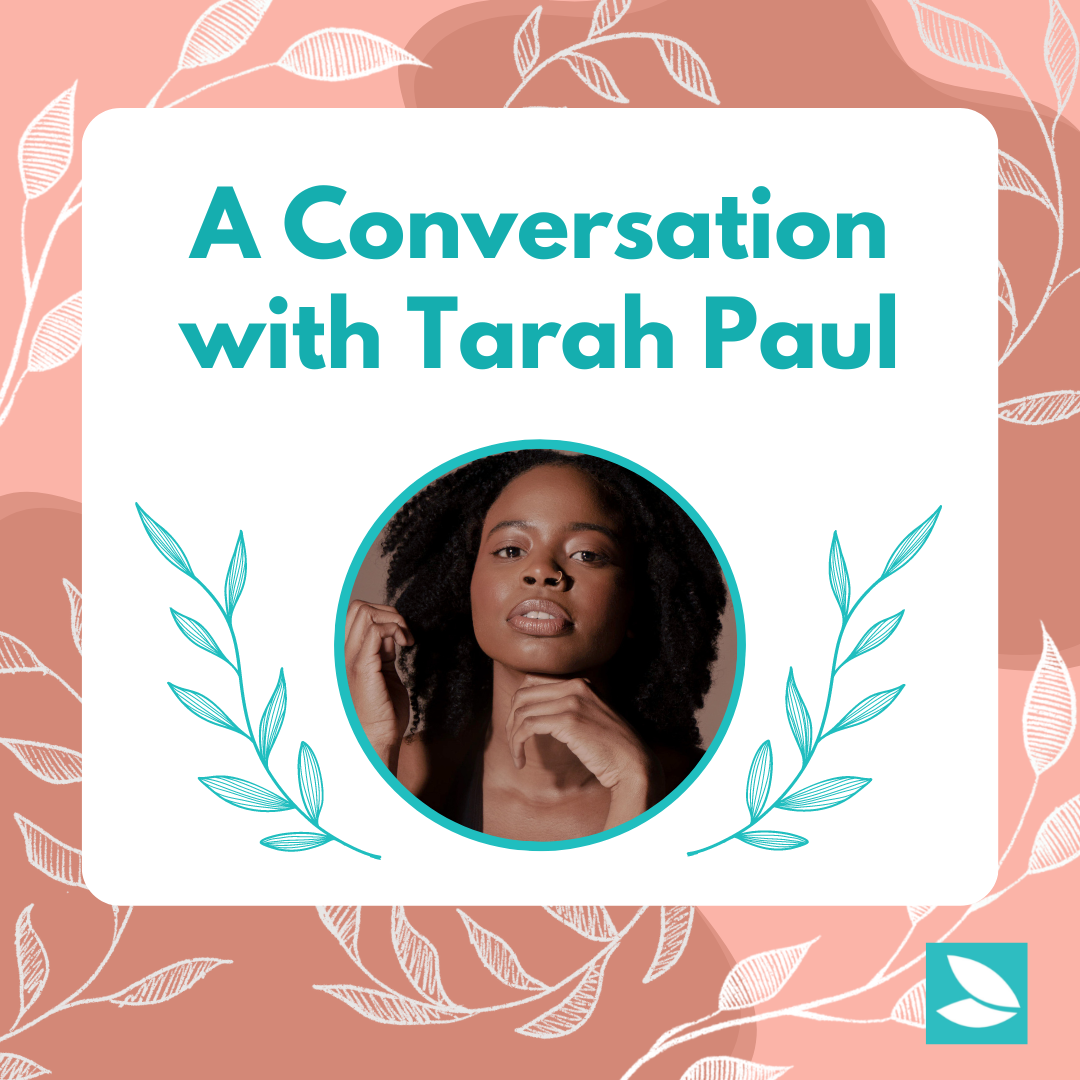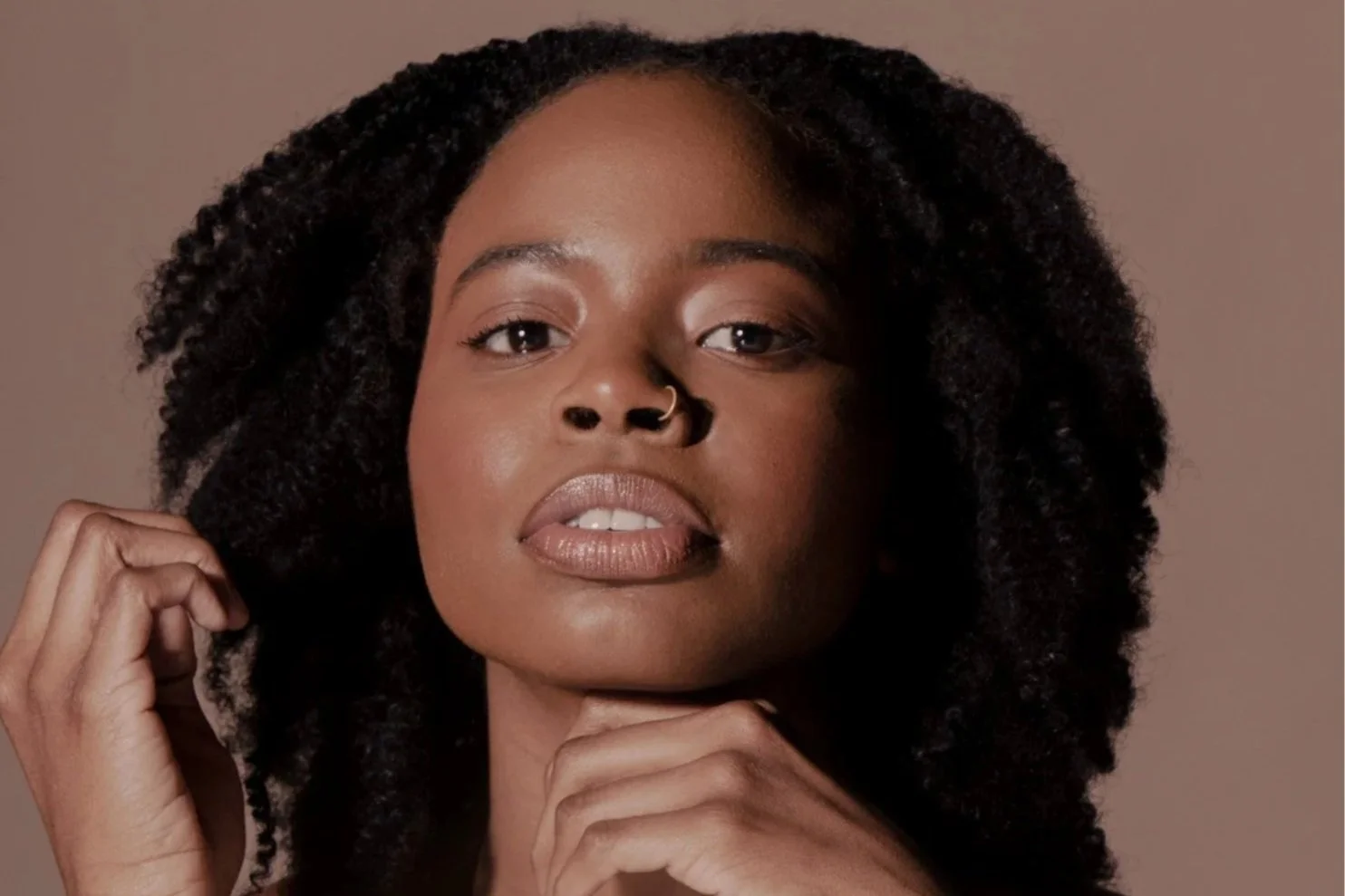A Conversation with Tarah Paul
Tarah Paul is the project manager for Truth & Transformation: Advancing Gender Equity For Black Women, Girls And Gender Diverse Peoples In Canada Initiative. We were so thrilled to have the chance to interview her for the blog this month.
To start off: what's bringing you joy right now?
Honestly, what has been bringing me joy lately is doing absolutely nothing and saying no. I am always on-the-go, working on this project, going to that event, etc. I can only speak for myself, but I think that as Black women, we have the tendency to people please, to overextend and overbook ourselves for others. The pandemic was a wake-up call for me, so I made the conscious decision to prioritize my wellbeing and mental health as much as I possibly can.
Saying no can make you feel guilty, and guilt is a powerful feeling. At first, it slowly seeps through your body like an IV drip, or a cold sweat, and it lingers. But the joy that I feel afterwards, when I know that I have prioritized myself, speaks volumes.
People might think it’s trivial, but I feel so much joy on the weekends when I do not plan anything. Lately, I love to sleep in, exercise a bit, go get a latte at my favourite café around the corner, then either go back to bed or catch up on the latest episode of my favourite TV show. It brings me so much joy to embrace rest and slow down because I am more in tune with myself, my needs, my wants. And that is when pleasure seeps in. Word to adrienne maree brown.
Can you tell us a bit about how you came to GBV work?
I often think GBV work chose me, or rather found me. When I first graduated from my Master’s degree, I was not planning to work in this sector. All I knew was that I had a passion for research, and interest in sex work and migration. I also knew that Black women had to be centred in my work.
To give you some backstory, my Master’s is in Inter-Mediterranean Migration Studies. I was very fortunate to have the opportunity to study in different countries in the European Union such as Spain, Italy, France, and the Netherlands. While living in a charming Dutch city called Utrecht, I was slowly building a network but still scrambling to find a decent job in my field after graduation. The clock was ticking, and my Dutch visa was about to expire. I either had to find a job with a work visa, or begrudgingly go back home to Montreal.
While I was at this crossroads, the #MeToo movement took off. Though the effects of #MeToo are still developing globally, that time helped affirm the experiences of so many people who did not consider themselves survivors for many reasons, such as gaslighting and shame. For me, it made me realize I could call myself a survivor. I understood gender-based violence through advocacy and research, but what I did not understand were the grey areas of sexual violence and consent in my own personal experiences. Hearing the accounts of survivors through this movement created by Tarana Burke struck me to my core, because I saw myself in them.
When my Dutch visa expired, I went home. I was not looking forward to sending job applications because after three years of living abroad, I felt like I’d lost touch with what was happening in Montreal. Little did I know, I would go back home and work in migration and do GBV work centred on Black and racialized survivors with precarious migration statuses. The perfect intersection for my interest and passion. So, I came to GBV work as a catalyst for myself as a survivor, but also to do work for my community.
Are there pieces of Black feminist history that you want people to know about?
I want people to know about the Black feminist history that is being written in the present. Knowledge is currently brewing, and Black feminists are at the forefront of it. Whether it is in research, intervention or advocacy, Black feminists everywhere are doing transformative and groundbreaking work.
Kalimah Johnson created ‘The SASHA Model: Black Women’s Triangulation of Rape’, a model that dives into the complexities of support services for Black women who experience sexual violence. Dr. Jade Almeida and Marlihan Lopez are conducting research on the experiences of Black women in the feminist Quebec landscape. Misanka Mupesse is working on her Master’s memoir about healing approaches for Black survivors with a special lens on grief in their healing journey. For her PhD, Kharoll-Ann Souffrant is working on the insights of Black feminist activists in Quebec’s #MeToo movement.
What do you want GBV organizations to know about working with Black survivors?
I want GBV organizations to know that acknowledging with Black survivors the anti-Black racism, systemic barriers, and systems of oppression they face is not something bad. While doing GBV work, I’ve experienced a lot of pushback from non-Black people who choose to ignore these realities in their advocacy and intervention.
In Quebec, we live in a society where racism is embedded in our institutions and interpersonal lives. Stereotypes such as the Jezebel, the Mammy, and the Sapphire are pervasive. They stick to us like glue, even when we try our hardest to reject them.
Black women and Black queer folks are not blind to these barriers. We might not all articulate it the same, but we feel it when we move through the world. Acknowledging these realities is not only liberating, it can be empowering. Without acknowledging them, we are not able to find solutions or strategies of resistance. It also opens up the space for Black survivors to express their frustration and their sadness. This is all part of healing.
To close out: what brings you hope in this work right now?
Doing this work is not easy. Some days, it crushes you. One day, it can be about violent and harmful GBV workplaces ingrained with White supremacy. Another day, it can be about the anti-Black racism that Black survivors experience when seeking support, healing, or justice. Or it could be about the weight of our systems and institutions, such as support services or the criminal legal system, that are not in the best interest of Black survivors.
Lately, I have been in community, as bell hooks would define it, with Black feminists who are prioritizing themselves more while fighting for liberation. That could mean taking the day off, or quitting a job that has a toxic environment. I am not saying that we are all able to do this consistently, or do it at all. Self-care is a privilege. But I am hopeful because I see more and more Black feminists choosing peace of mind and rest where they can. I am hopeful because of the bonds that we have created. I am hopeful because we can cry together. We can share strategies of resistance. I am hopeful because we have community.
References
Almeida, J., Lopez, M. (2021). Feminist workplaces: “Safe spaces'' for black women? In Kuptsch, C., Charest, E. (Eds), The future of diversity, Geneva. International Labour Organization, (pp. 171-185). Retrieved from <https://www.ilo.org/global/publications/books/WCMS_831316/lang--en/index.htm>
brown, a. m. (2019). Pleasure activism. AK Press.
Collins, P. (2009). Black feminist thought: knowledge, consciousness, and the politics of empowerment. New York, NY: Routledge.
hooks, b. (2003). Teaching community: a pedagogy of hope. Routledge.
Johnson, K. (2018). The SASHA Model: Black Women’s Triangulation of Rape. PDF. SASHA Center-Model Committee, Detroit. August 29, 2018. Facebook SASHA Center Page. www.sashacenter.org
Me Too Movement (2021). Me too. [Online]. Available from: https://metoomvmt.org/
Souffrant, K.-A. (2022). Research Project: Insights from Black feminist activists on the #Metoo Movement in Quebec. https://www.metoo-femmesnoires-qc.com/?fbclid=IwAR0S1ylNSeGZU-8Y-xfpS5A7m6tM5dbjQbvh47QZRYfn6KpScoyD8rUrpG8
Suggested Reference: Paul, T. (2023, February). A Conversation with Tarah Paul. Courage to Act. www.couragetoact.ca/blog/tarah-paul.
Tarah Paul (she/they)
Tarah is the project manager for Truth & Transformation: Advancing Gender Equity For Black Women, Girls And Gender Diverse (B-WGGD) Peoples In Canada Initiative. With a BA in Psychology and Sociology (University of Montreal) and a MA in Inter-Mediterranean Migration Studies (Ca’ Foscari University). She is dedicated to contributing to grassroots initiatives and research centred on Black women. Aside from her research on Black sex workers in the Dutch context, she also conducted research on Black undocumented migrant women living in Morocco. Her research interests are migration, race, gender, and sexuality. Currently, she lives in Tiohtiá:ke/Montreal, situated in the territory of the Kanien’kehá:ka nation. You can contact her at tarahstefiepaul@gmail.com.



